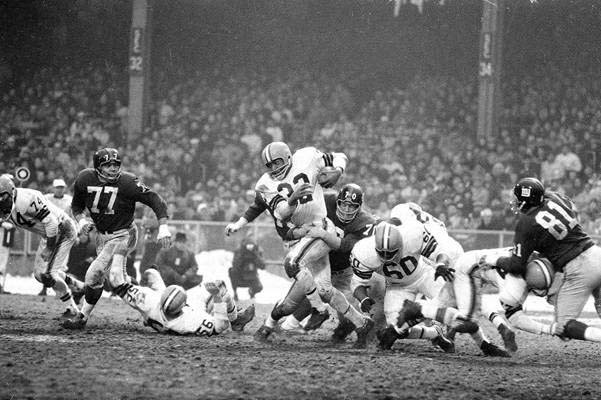
Once a primarily American pastime, the National Football League (NFL) has grown into a global phenomenon, captivating audiences far beyond U.S. borders. The journey of the NFL’s expansion is a tale of vision, innovation, and adaptability, proving that the appeal of sports transcends cultures and continents.
The NFL’s Beginnings and Domestic Rise
Humble Origins
The NFL was established in 1920 as the American Professional Football Association (APFA). With just a few teams and small-town roots, the league initially struggled to gain a foothold in the competitive sports landscape dominated by baseball and college football.
From Struggles to Stardom
As the league evolved into the NFL, key developments, such as introducing the forward pass and the Super Bowl in 1967, propelled its popularity. By the 1980s, the NFL had become a cornerstone of American culture, drawing massive TV audiences and creating household names of its players.
The Push for Global Reach
Breaking Borders with Preseason Games
The NFL’s first step toward international exposure came through preseason exhibition games in the 1980s. These games, played in Canada, Mexico, and Europe, allowed the league to test international interest.
NFL Europe – A Bold Experiment
In the 1990s, the league launched NFL Europe, a developmental league that introduced American football to European audiences. Although it folded in 2007 due to financial challenges, it laid the groundwork for future global initiatives.
London – The Gateway to Europe
The NFL International Series
The NFL International Series, launched in 2007, marked a turning point. London’s Wembley Stadium became the home of regular-season games, drawing fans from across Europe. These games not only showcased high-level competition but also provided immersive fan experiences, introducing British audiences to the pageantry of American football.
Expanding the Footprint in the UK
With the success of London games, the NFL doubled down on its efforts, even discussing the possibility of a permanent franchise in the UK. This move underscores the league’s commitment to deepening its European presence.
Digital Platforms and Global Access
Streaming the Game Worldwide
The NFL has leveraged streaming platforms to reach fans globally in the digital age. Services like NFL Game Pass offer live games, highlights, and exclusive content, breaking down geographical barriers.
Engaging Fans Through Social Media
The league’s active presence on platforms like Instagram, Twitter, and YouTube has fostered connections worldwide with younger, tech-savvy audiences. Viral clips and interactive content make the sport more accessible, even to those unfamiliar with its intricacies.
Adapting to International Audiences
Blending Cultures
The NFL has integrated local customs and traditions into its events to resonate with global fans. For instance, games in Mexico City feature mariachi performances, while German fans enjoy tailgate parties with regional flair.
Developing Local Talent
Recognizing the importance of representation, the NFL has invested in scouting and developing international players. Programs like the International Player Pathway allow global athletes to join the league, fostering a deeper connection with overseas audiences.
The Role of Iconic Players in Global Popularity
NFL Superstars as Ambassadors
Players like Tom Brady and Patrick Mahomes have become global icons. Their influence extends beyond the field, amplifying their appeal with endorsement deals, charity work, and international fan bases.
The Global Language of Stardom
Sports heroes have a universal allure. The charisma and achievements of NFL players resonate with fans regardless of cultural or linguistic barriers, further cementing the league’s international reputation.
Overcoming Challenges in Global Expansion
Competing with Local Sports
The NFL faces stiff competition from entrenched local sports like soccer in Europe, cricket in South Asia, and rugby in Oceania. These sports dominate viewership and cultural relevance, making it essential for the NFL to carve a distinct identity in these regions.
Logistical and Cultural Barriers
Organizing games across continents involves complex logistics, from travel arrangements for teams to aligning time zones for global broadcasts. Additionally, the NFL must navigate cultural differences to appeal to diverse audiences.
Strategic Partnerships and Future Plans
Collaborating for Growth
The NFL has partnered with local broadcasters, sponsors, and governments to expand its global reach. These collaborations help localize content and make the sport more relatable.
Exploring New Markets
Regions like Asia and Africa represent untapped potential for the NFL. Events, outreach programs, and digital content tailored to these audiences could unlock new levels of international engagement.
The NFL’s evolution from a regional pastime to a global phenomenon is a story of determination, creativity, and resilience. By embracing technology, adapting to diverse cultures, and leveraging the universal appeal of sports, the league has established itself as a unifying force across continents. As the NFL grows its global footprint, its legacy will undoubtedly inspire new generations of fans and players alike. For those who enjoy exploring different forms of entertainment, platforms like malaysia slot offer exciting opportunities to engage with global gaming trends.
Unleash the Action: Sign up for XFL Insider and Fuel Your Passion for Football!

USFL and XFL Merger: A Deep Dive into the Historic Collaboration
Latest Podcast
-


XFL Podcast
/ 1 year agoXFL-USFL Merger Insights: Houston’s Future, Draft News, Player Movement – Ep. 216
Welcome to Episode 216 of the “XFL Week In Review,” your premier destination for...
By Mark Perry







